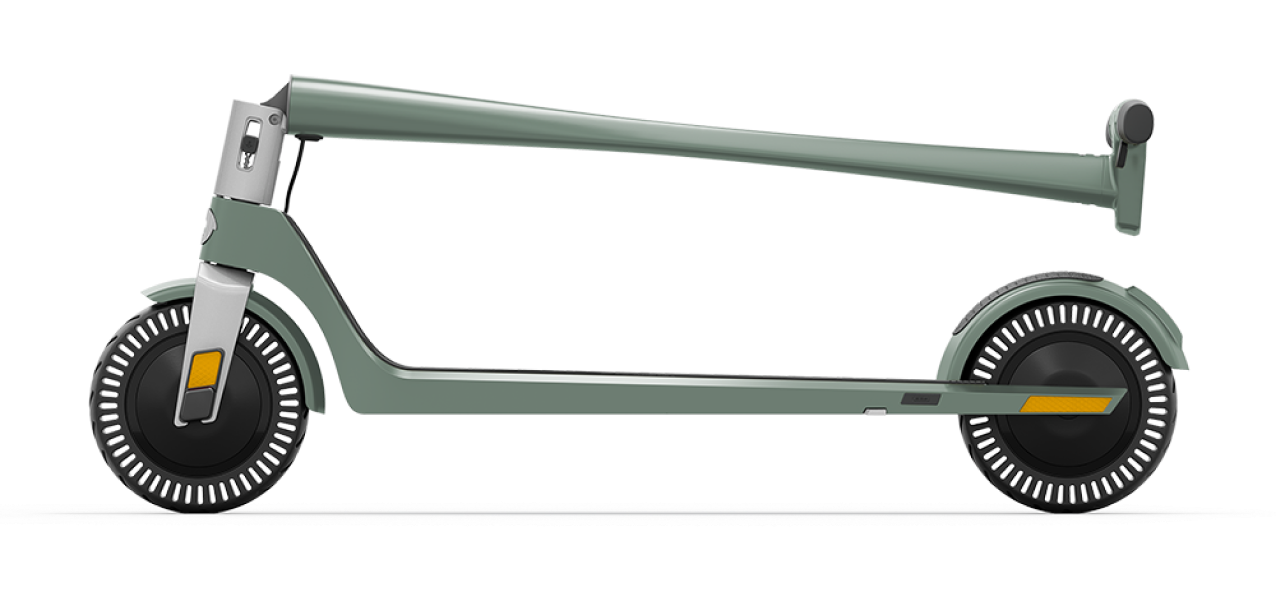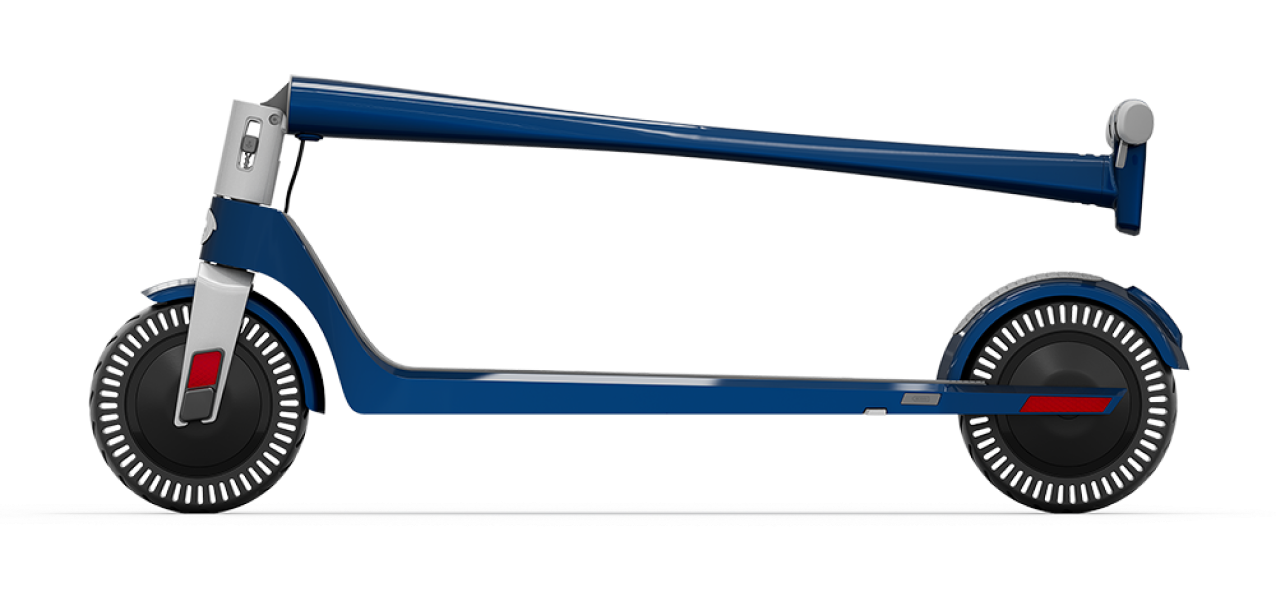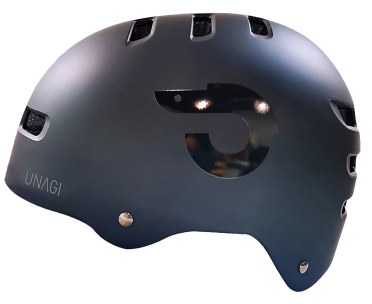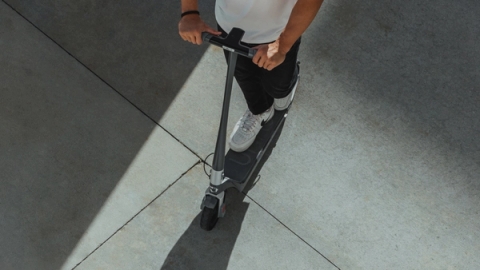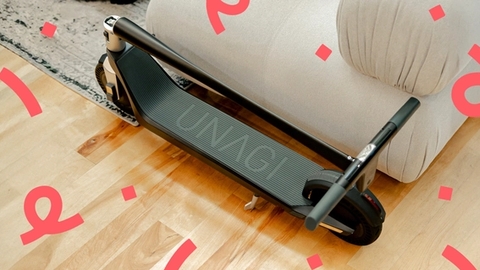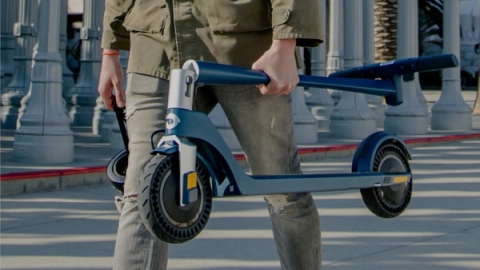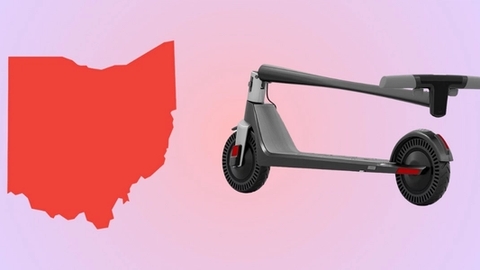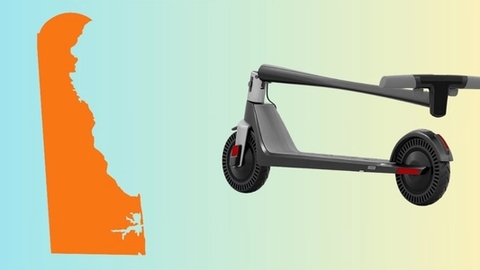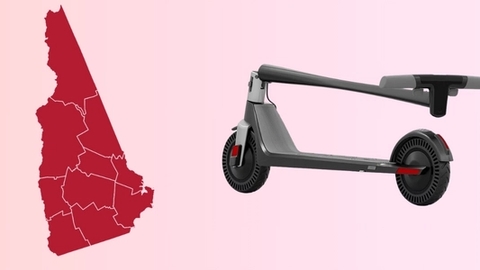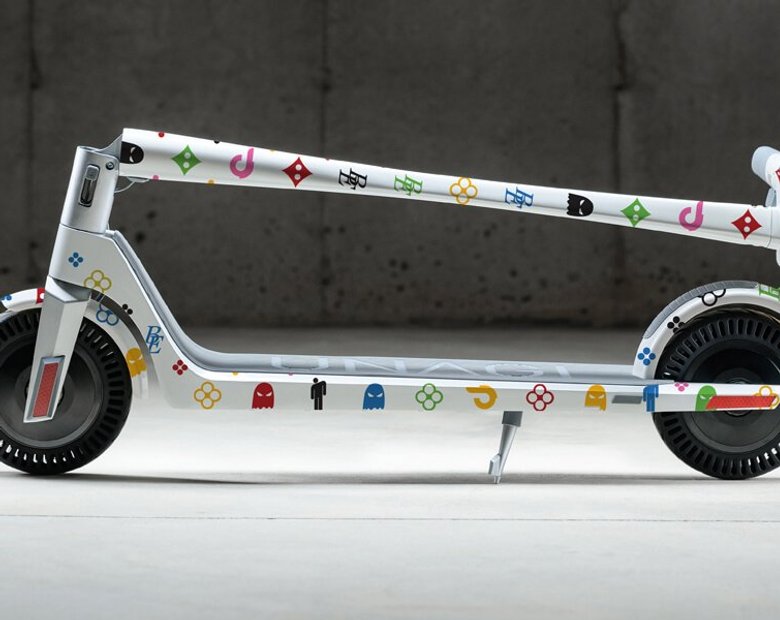Micromobility is here to stay, and it’s changing how we experience urban life for the better. With Unagi’s membership program, you can enjoy all the benefits of a top-tier electric scooter without the sky-high price of ownership or the inconvenience of ride-sharing.
Electric scooter lights laws are not always the same in every state. Your E scooter lights may be legal but are they bright enough?
A top priority when riding your electric scooter is feeling safe. Which means taking actions for actually being safe.
Most electric scooter riders know they must wear a helmet before stepping onto the deck. And checking they have enough battery charge to make the journey, there and back.
But what about lights on your e scooter? Particularly, front and rear lights, such as the headlight, brake light and reflectors.
Not only do you need to see pedestrians, cyclists and passing vehicles. They need to see you. Not always easy if you’re riding one of today’s quieter electric scooters.
And always a safety risk after dusk falls, and during the winter months.
In this article you’ll discover recommended lighting requirements. As well as what the law says in your state about electric scooter lighting.
Let’s go…

Why your electric scooter lights may not do the job needed
You’ve probably noticed on some electric scooters:
- A single headlight is mounted half-way down the stem, near the front wheel or in the deck, itself.
- Headlight beam is limited or has underpowered LEDs.
Headlight may light up the immediate ground ahead of you but unlikely to make your presence clearly visible to other road users.
- No turn signal lights at all.
More often associated with budget scooters, and a clear safety risk when attempting any maneuvre.
- Tail lights have no choice other than to be mounted extremely low on the rear fender.
Potential limit to being clearly seen, or even noticed by anyone travelling at a distance behind you.
Recent research reveals why e scooter lights really do need to be up to the job. Particularly, if you’re riding late in the evening or at night.
- More than 1 in five (22 percent) of electric scooter rides were between 7pm and 12am.
- More than 1 in sixteen (6 percent) of electric scooter rides were between midnight and 7am.
(Source: National Evaluation of e-scooter Trials, Findings Report, Jul 2020 - Dec 2021. Department for Transport (DfT), published December 2022).
A previous study carried out in Washington, D.C found e scooters can be:
- Most often used at off-peak times.
( Source: McKenzie, Department of Geography, McGill University, Montreal, Canada September 2019).
You might suppose that LED strips running up and down the stem, sides of the deck, or underneath the deck (all known as “swag lighting”), may be bright enough to be seen.
But it’s the main e scooter lighting - headlights, brake lights, turn lights, side lights and reflectors - that are all-important to riding safety.
And increasingly, according to the law too, of course.
Let’s look at what the US electric scooter lights laws have to say.
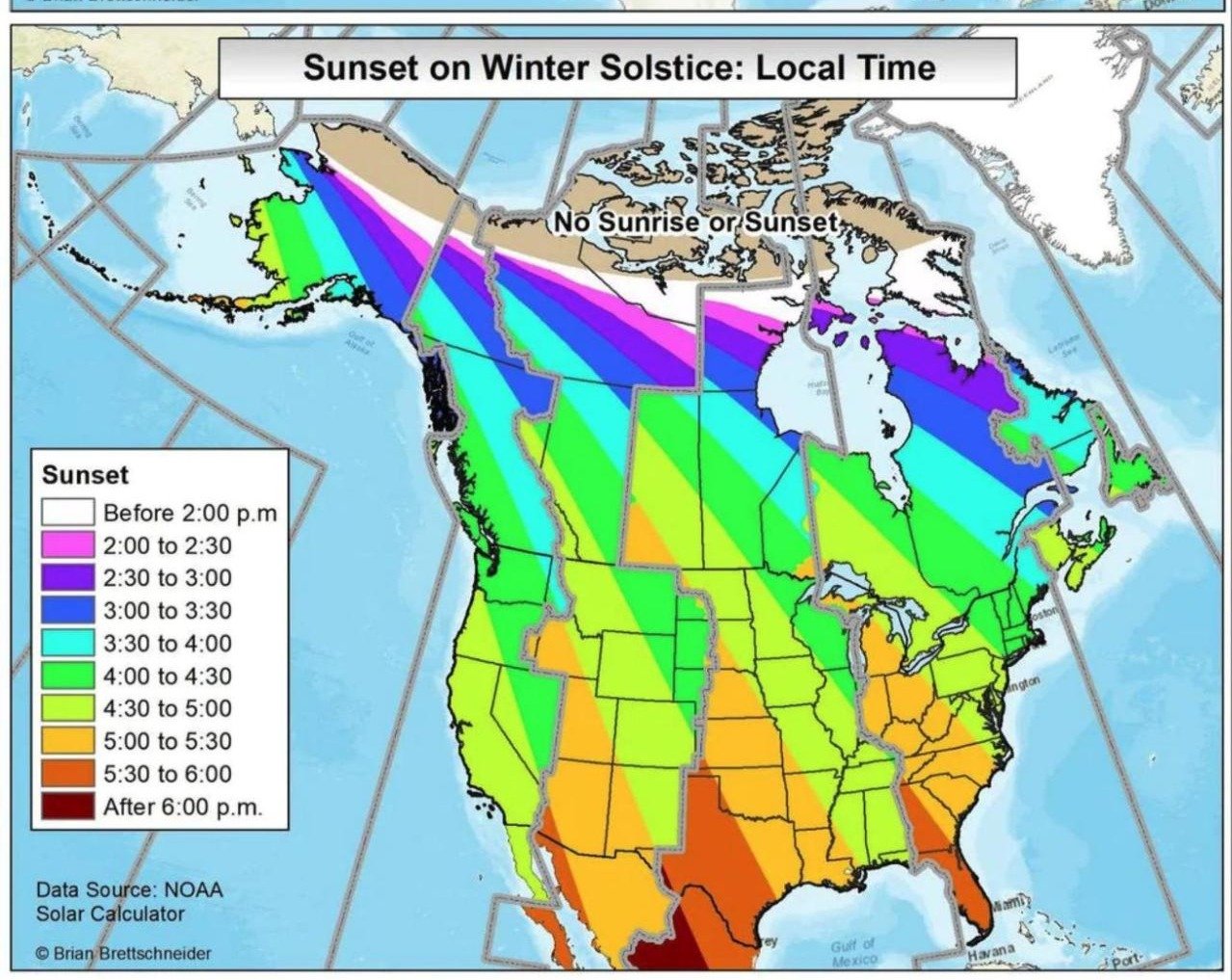
E scooter lights regulations
Lighting up times
Firstly, the law for daily, vehicle lighting up times also applies to electric scooters.
In the United States, the law requires all vehicles, including ‘motorized’ scooters, to have their headlights switched on between sunset and sunrise. This also applies to electric scooters.
E scooter lights laws
The US Department of Transportation (DOT) does not actually set out - at federal level - standard technical specifications for lighting on specific types of vehicles, including electric scooters.
This is the responsibility of DOT's National Highway Traffic Safety Administration (NHTSA), which primarily focuses on motor vehicle safety standards.
However, they also establish lighting regulations, which DO apply to different types of vehicles, including electric scooters.

Despite the lack of a federal law applied specifically to electric scooter lighting the actual lighting standards for electric scooters are outlined in the Federal Motor Vehicle Safety Standards (FMVSS), established by the NHTSA.
These standards provide technical specifications for lighting equipment on motor vehicles, ensuring visibility and safety on the road.
Firstly… under FMVSS No. 108, Section 5.2.1, all vehicles operated on public roads must be equipped with the following minimum lighting equipment:
- Two rear-position lights
- One or more stop lamps
- One or more turn signal lamps
The lights must be mounted in a way that makes them clearly visible to other motorists, and they must be maintained in good working order.
Lights laws - standard technical specifications
Looking specifically at the standard technical specifications of all lighting, including headlight and tail light on an electric scooter made available in the USA.
Under Federal Motor Vehicle Safety Standard (FMVSS) No. 167:
Headlight:
- Color - must be white or amber.
- Location - must be mounted 12 inches (30. 4 cm) MINIMUM, above the ground and 4 inches (10. 1 cm) MINIMUM, below the handlebars.
- Brightness - must emit 30 lumens* MINIMUM, of light.
Tail light:
- Color - must be red.
- Location - must be mounted 12 inches (30. 4 cm) MINIMUM, above the ground and 4 inches (10. 1 cm) MINIMUM, below the seat.
- Brightness - must emit 15 lumens* MINIMUM, of light.
Reflectors:
- Color - must be white or amber.
- Location - must be mounted on the front and rear of the scooter.
- Size: Rear - must be at least 1.5 inches (3.8 cm) in diameter (from side to side).
- Size: Side - must be at least 1 inch (25 mm) in diameter.
- Visibility: Rear - must be visible from at least 600 feet (182.8 meters) away.
- Visibility: Side - must be visible from at least 100 feet (30 m) away.
*Lumens - a measure of how much brightness your e scooter LED lights can emit. You can find out more about recommended lumens your e scooter should have further down in this article.
*E scooter headlight laws
IMPORTANT: There’s actually no federal law that specifically requires electric scooters to have headlights. However, many individual US states have laws that DO require headlights on e scooters.
Let’s check out what the electric scooter lights laws are at state level, which may be slightly different from the above standards.
Electric scooter lighting laws in your state
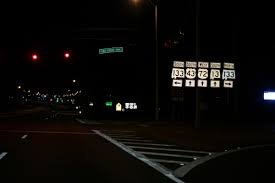
Lights laws for e scooters can be found in place across all states.
Alongside, many other regulations governing electric scooters, such as where you can and cannot ride, and maximum speed limits.
Firstly, it’s important to know that all 50 states, bar one, have set out regulations which require identical specifications for electric scooter lights.
The key electric scooter lights regulations in each state are focused upon the headlight, tail light and reflectors. The rules are that all electric scooters must have:
- White headlight, visible from 500 feet (152.4 meters) to the front.
- Red tail light, visible from 600 feet (182.8 meters) to the rear.
- Reflectors on the front, sides, and rear.
ONE state slightly differs in its lighting laws relating to visible distance:
- California - lights should be visible from a distance of 300 feet (91.4 meters).
IMPORTANT: Your county, town or local precinct may also have additional or slightly different regulations relating to electric scooter lighting requirements.
What are the penalties for failing to comply with electric scooter lighting laws?
General penalties can include:
- Fines up to $200
- Scooter impounded
- Traffic citation
- Criminal charge
Specific penalties you may face can vary from state to state. And according to the severity of the violation.
Examples:
In New York, you can be fined up to $150, for riding an electric scooter without lights. However in California, the fine can rise to $250 for the same violation.
IMPORTANT: Even if you’re not caught riding your scooter without lights, you could still be held liable if you are involved in an accident. This is because you are required to have lights on your scooter and be clearly visible to other road users.

How to know if your e scooter lights are bright enough
It’s not easy to make an instant judgement call on whether your e scooter lights will be bright enough. And compliant with your state or local area laws.
This is even more urgent when riding after dusk or during the many winter months of reduced daylight.
Plus, it’s very easy to simply not notice your lights have stopped working or are damaged. After a while they may not be visible from all angles and need to be readjusted.
One recent San Francisco study found:
- One in four (25 percent) electric scooters had either no lights, or lights not working properly.
- One in ten (10 percent) electric scooters had missing or damaged reflectors.
(Source: Best Practices for the Public Management of Electric Scooters, University of California, Berkeley Institute of Transportation Studies (UC ITS), October 2020).
At the outset, key factors which can severely reduce how visible you are to other road users, are:
Low mounted lights
Illumination is restricted to a small area immediately ahead of you (often only a few feet). This can seriously limit your response time when maneuvering or riding at speed.
Poor quality lenses
The projected beam of light is not sharply focused and has a reduced reach. This makes the light appear underpowered and more difficult to clearly see.
Underpowered LEDs
All e scooters have lights using LEDs ( light-emitting diodes). They’re designed to provide a more powerful and efficient light source. But much depends on the power rating of the LEDs installed.
So let’s take a look at how e scooter lights are rated for brightness…

Know your lumens
It’s important to know your electric scooter uses LED lights. And you measure the brightness of LEDs in lumens. Not by watts, which is how traditional light bulbs are rated.
There is a key difference between the two types of ratings, as follows:
- Lumens - the total amount of light emitted by a light source.
- Watts - amount of energy used by a light source.
Energy-efficient LEDs are able to emit the same number of lumens at a reduced number of watts.
The amount of lumens emitted is based upon the number of LEDs a light source contains.
- 2 - 3 watt LED headlight light will emit up to 200 lumens.
Suitable only for riding on well-lit inner city and urban routes, illuminated by frequent street lighting, and alongside brightly lit shopping precincts.
- 5 - 7 watt LED headlight will emit up to 300 - 500 lumens.
Ideal for visibility in most riding conditions where you have sufficient illumination to clearly see the road, and other road users ahead. And they can clearly see you approach.
Night Riding
If you are likely to be riding at night and / or off-road in poorly lit areas, to boost your visibility and follow state e scooter lights laws:
- Your e scooter headlights should emit around 700 lumens.
- Switch headlight to the brightest setting for maximum road visibility.
- Both headlights and rear lighting should be visible at least 150 meters (500 ft) in front, and behind your scooter.
It’s essential to always be extra cautious when riding an electric scooter at night. Other road users and pedestrians will always find it difficult to see you, especially if you’re riding at speed.
Wear bright clothing and use hand signals to indicate your intentions. Slow down and be aware of your surroundings.
In day time bad weather… keep your headlight and tail lights switched on.

Brightness and light beam angle
There is also a direct relationship between the brightness of an LED light and its beam angle.
This is also important because the beam angle determines how large the generated light circle appears on an illuminated object.
A key factor is also the distance between the light source and the illuminated object.
Example:
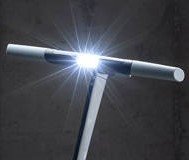
Unagi have fitted their Model One (E500) electric scooter with:
TWO flush-mounted 1.8 watt LED headlights capable of emitting around 300 lumens over a distance of up to 50 meters (164 feet).
Easily powerful enough for the daily urban commute - and compliant with individual state requirements.
*IMPORTANT: Actual beam length on an electric scooter can vary according to the quality of the LED and the design of the headlight.
This means that not all e scooter headlights are powerful enough for reduced lighting conditions. In a number of cases it’s strongly recommended to add an additional LED headlight to boost road visibility.
Plus, the beam length of an LED headlight:
- Will reduce over time.
- Can be affected by air temperature.
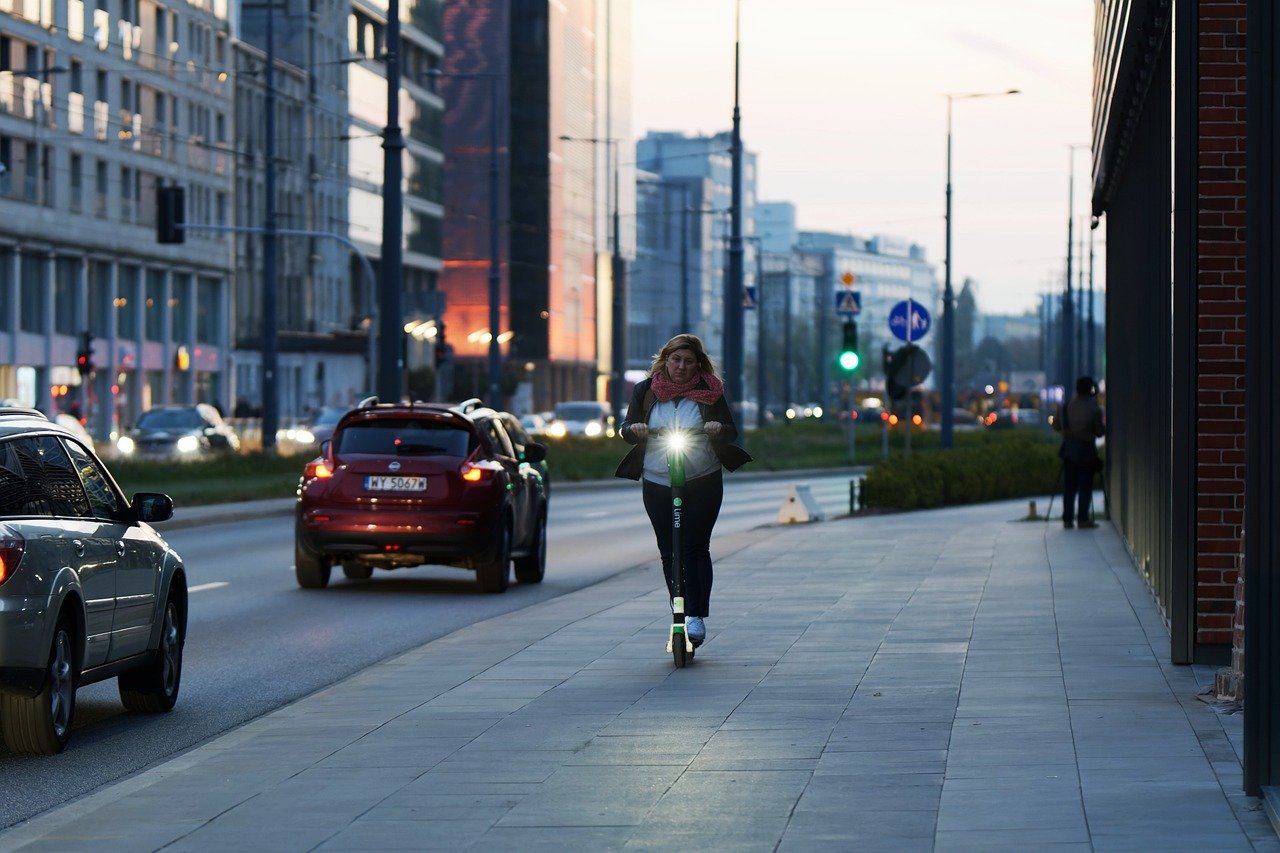
E scooter lights and battery drain
Under the Federal Motor Vehicle Safety Standards (FMVSS), you are also obliged to ensure your e scooter lights are maintained and in good working order.
But did you know… e scooter lights may only last a few hours on a single battery charge. Yet also last for several days without recharging.
So what happens during your ride when you suddenly notice your lights are not as bright as at the start of the journey? And they appear to be getting gradually dimmer all the time.
You run the risk of having an accident. And a penalty if you’re caught with your scooter lights not working properly.
Battery drain can be a major issue affecting the power of your scooter lighting.
Causes of battery drain
Your scooter lights are a cause of battery drain, which reduces by a percentage amount per hour according to:
- How powerful your lights are.
- How you use your lights.
Key factors are:
- Increasing speed.
- Added weight.
- Air temperature change.
Summary
Recommended advice…
When you’re checking out which is the best e scooter for your daily riding needs, remember it’s essential to:
- Find out what the electric scooter lights laws are in your particular state, and if they differ from the county, or town area.
- Does it have only one or a twin LED headlight? And what’s the lumens rating? It should be at least 300 lumens for urban rides.
- Is the headlight mounted into the front of the handlebars ( just like Unagi Model One), or fixed low on the stem? How far does the headlight beam project?
- Are there sidelights and / or reflectors on both the front and rear wheel arms?
- Is there a rear braking light and rear red reflector? (Often integrated as a single unit).
- Do you notice lights dimming after just a short while riding your e scooter? You’ll need to find out the cause. You may need to reduce your speed. You may also be exceeding the maximum speed limit for riding an e scooter in your state.
Riding in hot weather? Riding in wet weather?
Find out more about what really affects your electric scooter experience

Get up to speed!
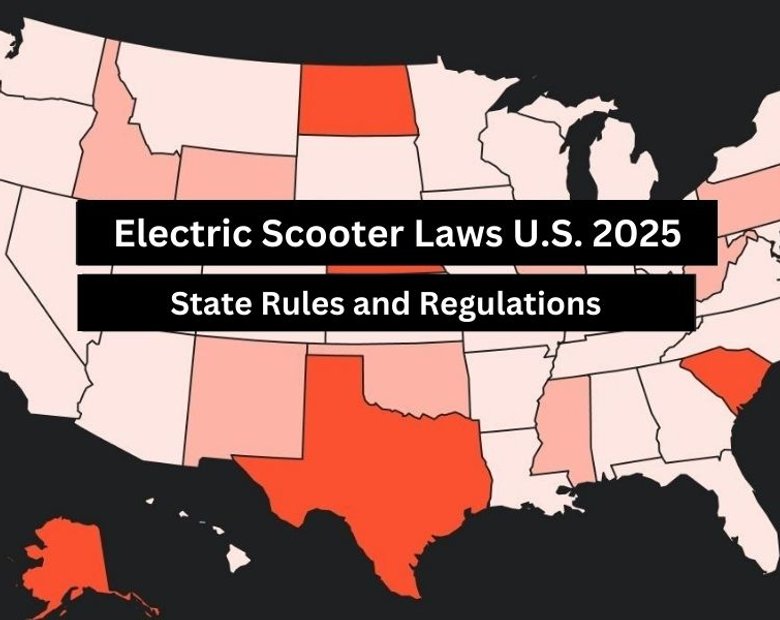
Stay current with the latest U.S. electric scooter laws in our 2025 guide. Updated annually since our first comprehensive guide, ensuring you have the most recent state and city regulations to ride responsibly”
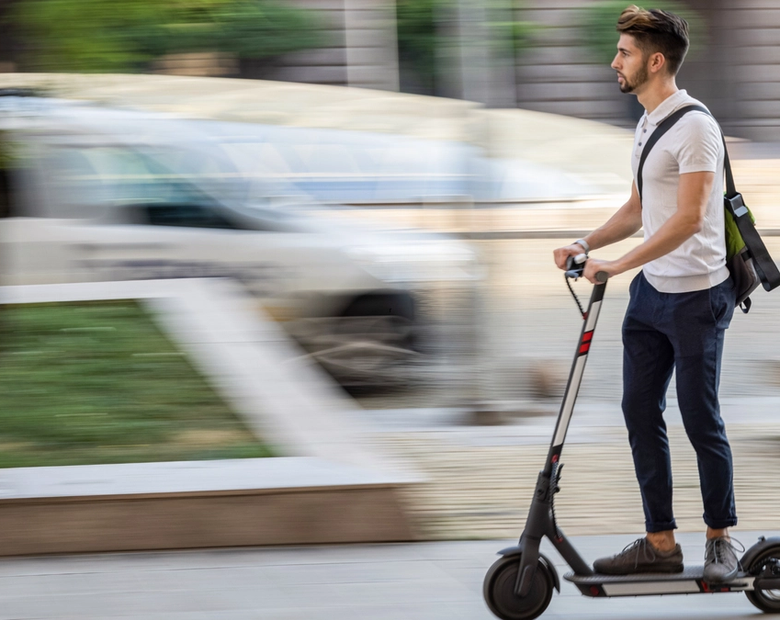
The Slack Core 920R is currently the fastest electric scooter in 2025 that you can purchase without the need for pre-order.
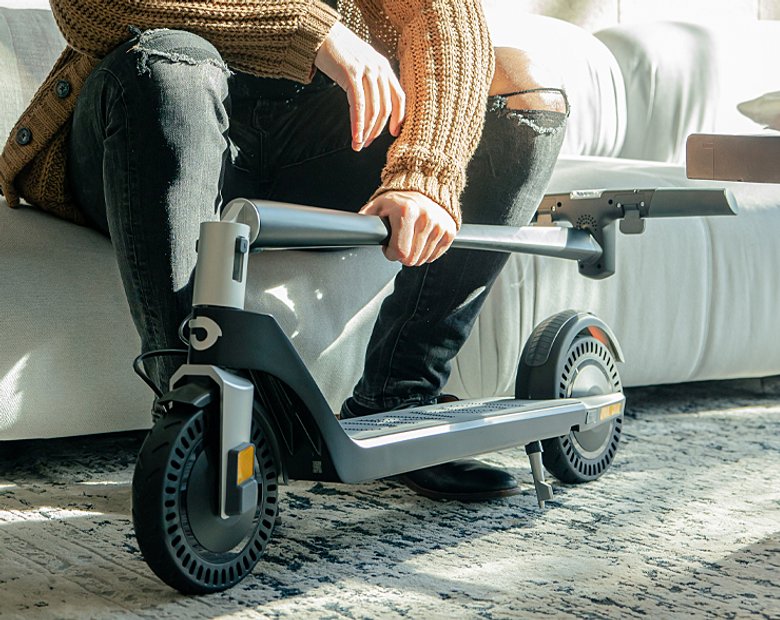
Our selection of the best electric scooters 2025 spans the fastest e-scooters to the most portable ones, the ones designed for city riding and off-road, the best scooters for rain, budget electric scooters for students, and more powerful ones for skilled riders.
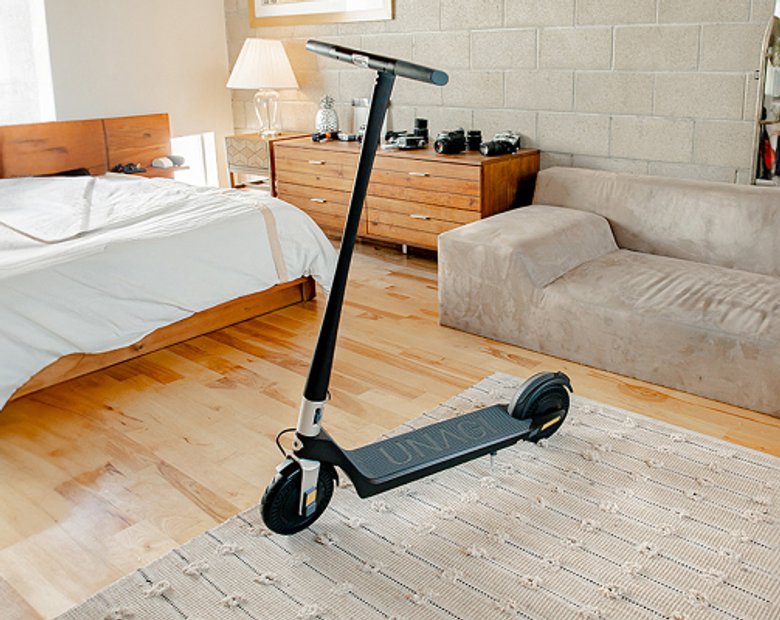
The Unagi Voyager is the best lightweight electric scooter for adults and teenagers. It is the ultraportable sequel to its predecessor, the Unagi Model One Classic.
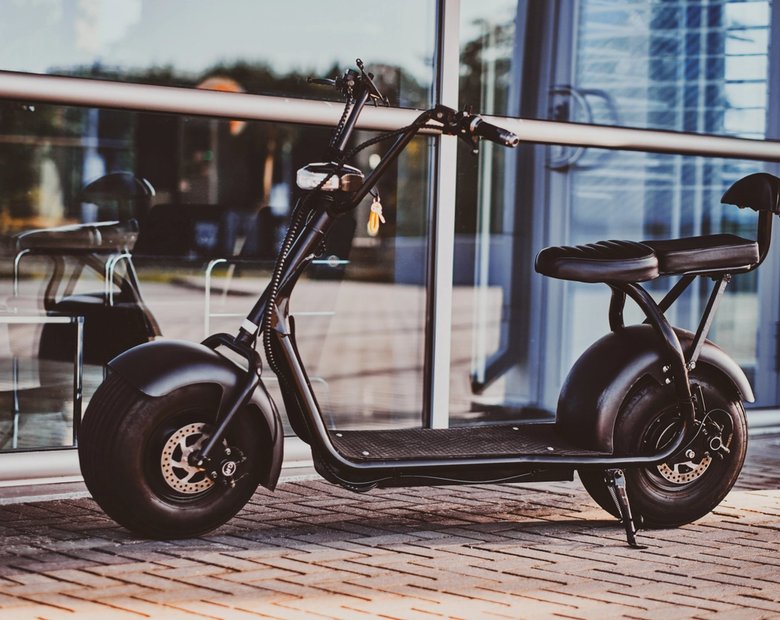
If you're wondering whether an electric scooter with a seat is right for you, this is a detailed article that would suit your need.
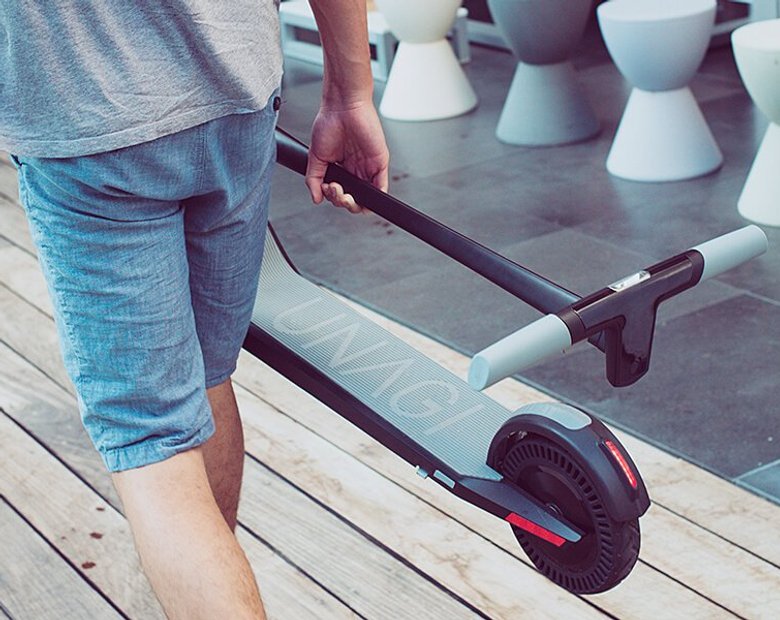
Understand which personal electric vehicle is best, the choice between an electric bike or electric scooter might already be made for you by some critical factors, including portability and storage capacity.
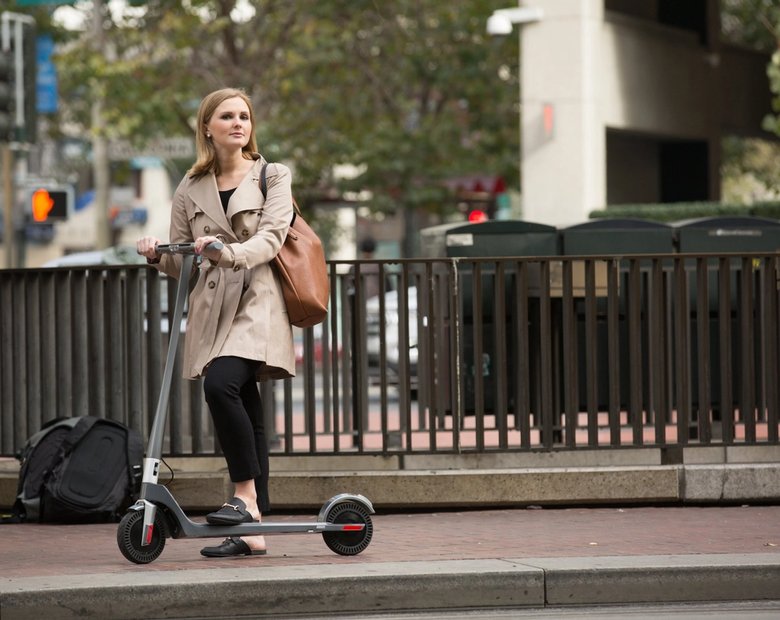
In the U.S., most states don't require a license. For those that do, they usually just ask for a regular driver's license or a learner's permit.
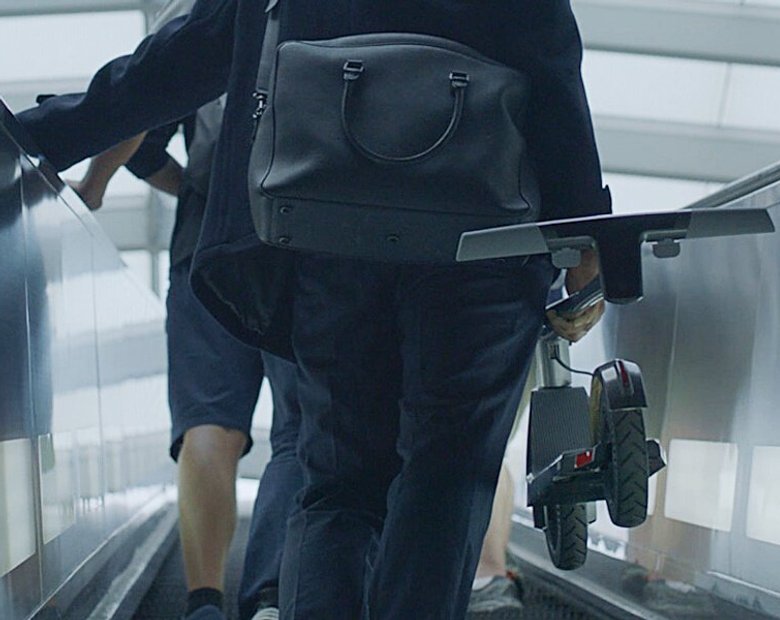
Yes, you can bring an electric scooter on a plane, but it needs to have a lithium battery smaller than 100 watt-hours, which most don't.

Manufacturers advise against riding electric scooters in the rain. The main reasons are: water can fry the electronics, make the ride dangerous, and void your warranty.

The basis and the premise of my work is that we either operate out of love or we operate out of fear...Time is currency. The coolest thing about the scooters is that it's really quick, and it goes uphill. From there, traveling more efficiently and having a good time doing it--I think that's the most important thing.

Cynthia Leu has a full plate. A tech worker by day, Cynthia spends her off time balancing the parallel lives of a powerlifter, entrepreneur, mental health advocate, and more. Riding Unagi helps this USMC veteran cut down on everyday…

https://www.youtube.com/watch?v=7m2hVBE62LY Rasheed Muhammad is sick of Los Angeles traffic. In order to preserve his sanity, Rasheed has traded his everyday driving habit for the portable and beautiful Unagi Model One. It’s an essential accessory for navigating LA streets -- and…

Rich Lee, Co-Founder of San Francisco’s SPRO Coffee Lab, wants to share his love for coffee with the world. He depends on riding Unagi to avoid the hassle of navigating the parking crunch in the booming Mission Bay neighborhood.…

